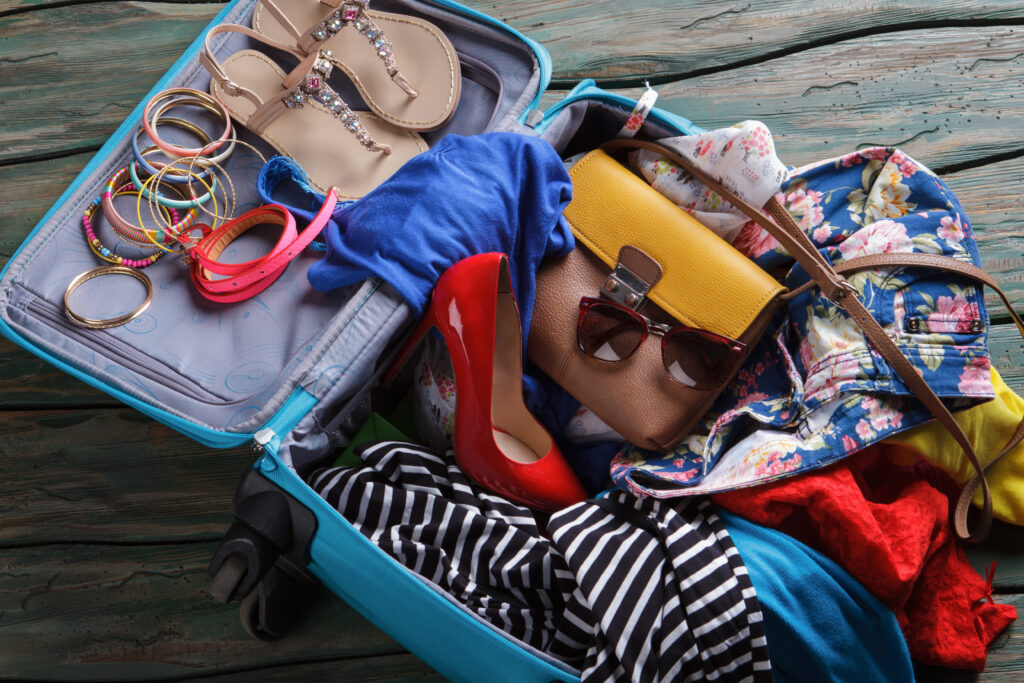Now that you’ve secured your place at university it’s time to start thinking about the things you do and don’t need to take with you. While it is tempting to pack every single item of clothing you own, your games console and a mini fridge, some of those things just simply aren’t necessary. Here’s a list of all the things you will need to take with you to college and the items you could probably do without.
While laptops are quite expensive, investing in one to see you through university is probably one of the best purchases you will make. These days you can get a fairly good one for a reasonable price and there are usually good deals around the start of term time that you can take advantage of. Your laptop will probably be one of your most used items from typing up lecture notes, writing essays, putting together presentations and researching. Additionally instead of bringing a TV to university, your laptop can be used for streaming TV shows and film on too.

Contents insurance for students will cost very little, but will take a huge weight off your mind, knowing that your possessions are protected in case anything should happen.
Having a little pack of basic medicines will be very useful while you’re at university, especially if you are struck down by the dreaded fresher’s flu. It doesn’t need to be too comprehensive, some cold and flu tablets or sachets, paracetamol, plasters, nasal spray, throat lozenges and antibacterial wipes should cover you for most minor illnesses and injuries.
And although this isn’t really a first aid item, making sure that you have some form of contraception with you whether it is condoms, your contraceptive pill, or any type that you feel comfortable using. Most universities do give out free condoms during fresher’s week so that is also always a good time to stock up.
This will depend on whether you are in self-catered or catered halls. If you are in catered halls, you may still need a few basic items in case your halls doesn’t provide food at certain times, but its unlikely that you will need a full set of things.
If you are staying in self-catered, then a basic set of pots and pans, a frying pan, and two or three plates, bowls, glasses and mugs will be enough for you. Other items to make sure to pack are wooden spoons, grater, colander, peeler, chopping board and a knife. It’s unlikely that you will need anything too fancy to cook with.
Aside from the usual things like toothbrush, toothpaste, shower gel etc, make sure you bring some bathroom cleaner and a sponge with you. These will almost always be useful.
One of the biggest things that will make your room feel like yours is the bedding you choose. Choose something that really reflects your personality and make sure you buy two sets of bedding. That way when you wash one, you’ll have another set to stick on straight away.
Additionally taking pictures, posters or any other kinds of room decoration will go even further in personalising your room. Having special and personal items with you can also help to keep homesickness at bay.

Nothing on this list should necessarily be kept away from university, but all of them are things that you can quite happily leave at home, at least at first.
Printers not only cost money to buy, but they also cost money to run. Ink cartridges and paper can be expensive, and this is a cost you can easily avoid. Universities will also have good printing facilities in the libraries and study rooms, so you’ll always be able to print things out when you need to.
As mentioned above your laptop can double up as a TV, so bringing a TV isn’t really something that you need to do. They can take up a lot of space and is another cost that you could do without. It’s very likely as well, that your halls of residence will have a common room with a TV, which is a much more sociable way to watch your favourite TV shows.
This is one of those things that really depends on the individual. If you are a hardcore gamer and can’t live without, then bring it along. But if you’re more of a casual gamer then it’s not really something you need. A suggestion is to leave it at home at first, and then if you find you really are missing it, bring it back when you head back to the university after the holidays.
While having a mini fridge or toastie maker in your room is very tempting, it’s really not that necessary to bring those things with you. Chances are your university probably won’t let you bring them anyway, due to fire safety rules, so this is something you should check. Additionally if you are in a communal kitchen you won’t be the only person that ends up using it which risks it getting dirty or even broken.
Start by picking the things that you know you wear the most, your favourite pair of jeans, t-shirts and jumpers. If there’s anything you haven’t worn for a few months, you probably won’t wear it now, so don’t take up precious wardrobe space with “just in case” items of clothing.
Think seasonally too. You’ll hardly be needing five pairs of shorts in winter, or a bulky coat in the summer so only pack the things that you’ll need for that season.
Also make sure that you have plenty of loungewear, comfortable shoes and at least one thing that could be used as a fancy dress outfit. That will always come in handy.

This is another one of those things that is based on the individual student. It’s a good idea to go without in the beginning and then if your university town doesn’t have great transport links or you live far away from university it may be worth bringing it in second term if you think it will make your life easier.
Also check if there is parking provision at your halls of residence. If there isn’t, then that’s your decision made for you really.
It’s pretty unlikely that you will need your notes or textbooks from A levels or high school as there is quite a difference between A level study and university study. Your university textbooks should be enough to get you through lectures and seminars.
Written by: Seeta Bhardwa
Source:
https://www.timeshighereducation.com/student/advice/packing-university-items-you-do-and-do-not-need
Whether you want to grow your skills, get picked up by an employer who needs your specific knowledge, earn more qualifications for your CV, or some combination of the three, the My Need to Live community is here to support you.
Join the platform 01 March 2023
01 March 2023
 30 October 2022
30 October 2022

The My Need to Live Support Directory is a resource created by us to help 16 – 24 year olds find the help, support, organisation or practitioner you need to help them with their wellbeing when they need it.
Support directory
myntladmin